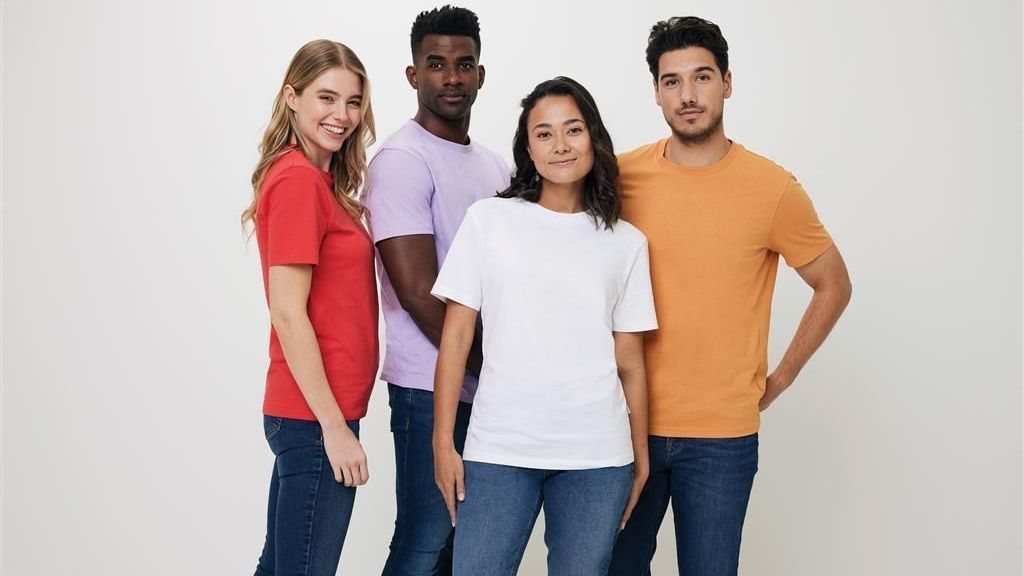How does greenwash affect the promotional merchandise industry?
and how should you go about avoiding greenwash?

What is Greenwash – and what does it mean for Promotional Merchandise?
Greenwash has been defined as “the act of misleading consumers regarding the environmental practices of a company or the environmental performance and positive communication about environmental performance”{1} The term Greenwashing was coined first in 1986, by an environmentalist Jay Westervelt. He published an essay on the hospitality industry about their practices to promote towel reuse. You have seen the message in the hotel room about reusing towels to save water when everyone knows it is to save money.
TerraChoice – quoted above - wrote a great article in which they further defined Greenwash in terms of the seven deadly sins {1} – and this abridged version helps explain how it works – so the seven sins:
1.
The sin of the hidden trade-off: a claim suggesting that a product is ‘green’ based on a narrow set of attributes without attention to other important environmental issues. For example are energy and oil corporations that advertise about the benefits of new sources of energy while some are drilling into unexplored areas to source oil and thus destroying natural habitats and losing biodiversity, disguising the imbued hidden trade-off
2.
The sin of no proof: an environmental claim that cannot be substantiated by easily accessible supporting information or by a reliable third-party certification. Common examples are facial tissues or toilet tissue products that claim various percentages of post-consumer recycled content without providing evidence. In short terms, if a corporation makes a claim that includes some kind of percentage or statistics info that are not verified with something that could prove it, like a fine-print text or a URL to lead to more information, the claim is considered as no proof.
3.
The sin of vagueness: a claim that is poorly defined or too broad, a claim lacking in specifics that its real meaning is inclined to be misunderstood by the consumer. ‘All-natural’ is an example of this sin. Arsenic, uranium, mercury, and formaldehyde are all naturally occurring, and poisonous. ‘All natural’ isn’t necessarily ‘green’. Other examples are “Non-toxic” because everything is toxic in certain dosages; “Green” and “Eco-conscious” are also vague because without elaboration they are meaningless.
4.
The sin of worshipping false labels: a product that, through a false suggestion or certification-like image, mislead consumers into thinking that it has been through a legitimate green certification process. An example is a paper towel whose packaging has a certification-like image that makes a claim that the product “fights global warming”. Other examples include green jargon such as “eco-safe” and “eco-preferred”.
5.
The sin of irrelevance: an environmental claim that may be truthful but is unimportant or unhelpful for consumers seeking environmentally preferable products. ‘CFC-free’ is a common example, since it is a frequent claim despite the fact that CFCs are banned by law.
6.
The sin of lesser of two evils: a claim that may be true within the product category, but that risks distracting the consumer from the greater environmental impacts of the category as a whole. Organic cigarettes could be an example of this Sin, as might the fuel-efficient sport-utility vehicle.
7.
The sin of fibbing: environmental claims that are simply false. The most common examples were products falsely claiming to be Energy Star certified or registered.
So what does this mean for the Promotional Merchandise Industry?
So what does this mean to the marketer when choosing promotional goods? Well first we need to realise that this is not just about image and perceptions of the brand. The issue is governed by the law and the ASA – Advertising Standards Authority - is able to take action against false claims. The ASA is currently examining the use of terms such as ‘net zero’ and ‘carbon neutral’ to ensure that there are clear definitions for people to follow.
The promotional goods industry is also governed by the BPMA codes of conduct and indeed there is a specific Section 11 available to download at www.asa.org.uk which covers environmental matters. What is the advice in practical terms?
1.Watch out for vague terms – “green” or “low impact”
2.Look for evidence such as ones of the standards badges – see https://www.pavilionearth.co.uk/what-does-sustainable-actually-mean
3.Avoid products which show no qualification or evidence – or ask for the evidence.
4.Watch out for terms like “recyclable” – many items can technically be recycled but are not commonly recycled from post-consumer waste in the UK but rather an element is recycled in production. This is not wrong per se but you do need to understand before you buy – just ask
5.Also avoid claims which appear exaggerated (they probably are!) – things like “100% environmentally friendly”
Pavilion has always taken the view that an adult conversation is far better than exaggerated or false claims and so we encourage the conversation with both our suppliers and our clients.
{1}
TerraChoice (2010) The sins of greenwashing: home and family edition.





